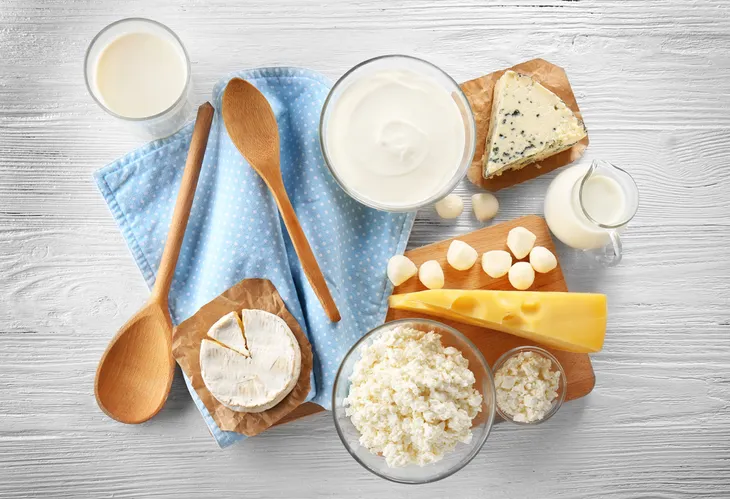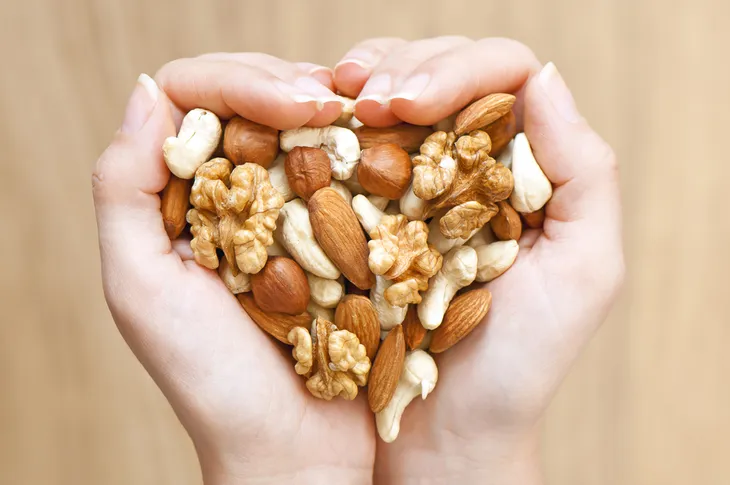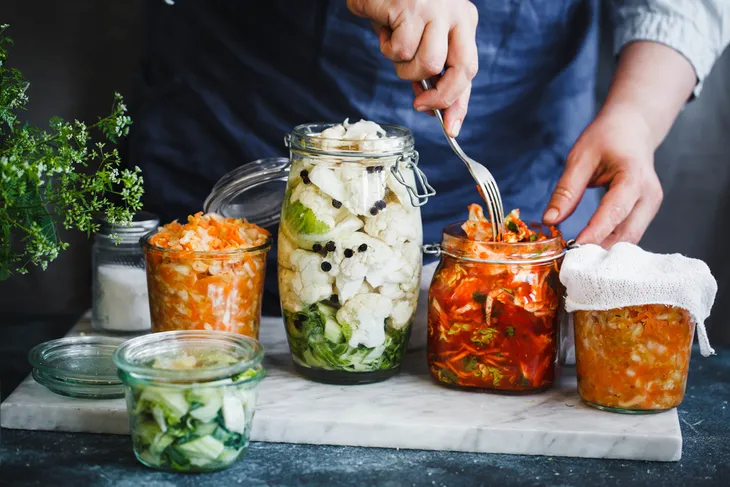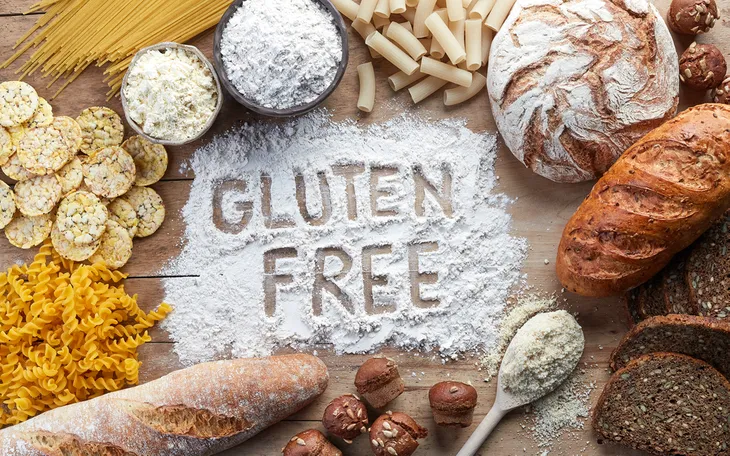- Ulcerative colitis is a type of chronic inflammatory bowel disease that causes inflammation in the digestive tract.
- Adjusting your diet may help you manage the disease.
- The first step is to identify your trigger foods which can be done by keeping a food journal.
Ulcerative colitis is a type of chronic inflammatory bowel disease (IBD) that causes ulcers and inflammation in your large intestines, it can affect the very end of the small intestines too. A sufferer of this condition is no stranger to the uncomfortable and painful symptoms that come with it. While the exact cause is unknown, Medical News Today says doctors think the disease is linked to environmental factors, lifestyle choices, genetics, and westernized diets. As such, adjusting your diet may help you manage the disease.
Keep in mind, there is no specific diet that is best for everyone with ulcerative colitis. You’ll need to find out which foods trigger your symptoms and limit these foods to help reduce future flares. Follow along as we take a look at which foods may trigger UC flares and which foods may help prevent them. We’ll also uncover more dietary tips you can consider.
Eating During a Flare-up vs. During Remission
Even when you try your best, flare-ups still happen. They typically cause all the awful symptoms of ulcerative colitis like fatigue, frequent diarrhea, and rectal bleeding. During this time it’s important to understand which foods make your symptoms worse while also remembering to still nourish your body with essential nutrients.
It’s also possible for ulcerative colitis sufferers to experience periods of remission, in which you’ll be symptom-free. While there is no proven way to prevent flare-ups from returning, you may be able to help prolong the remission period by avoiding trigger foods and eating a healthy diet. It’s also important to work closely with your doctor and dietician to develop a healthy eating plan for you.
Eat: Salmon
Salmon can be a great protein source for ulcerative colitis sufferers because it’s chock full of omega-3 fatty acids. Some studies suggest that omega-3s have anti-inflammatory properties which may help individuals manage inflammatory and autoimmune diseases, like ulcerative colitis.
Omega-3s may also benefit your heart health and improve your mood. It may also play a protective role in cancer and other conditions too. When cooking salmon, avoid frying it as this can cause it to lose a lot of its nutritional value. Instead, bake or broil it in the oven.
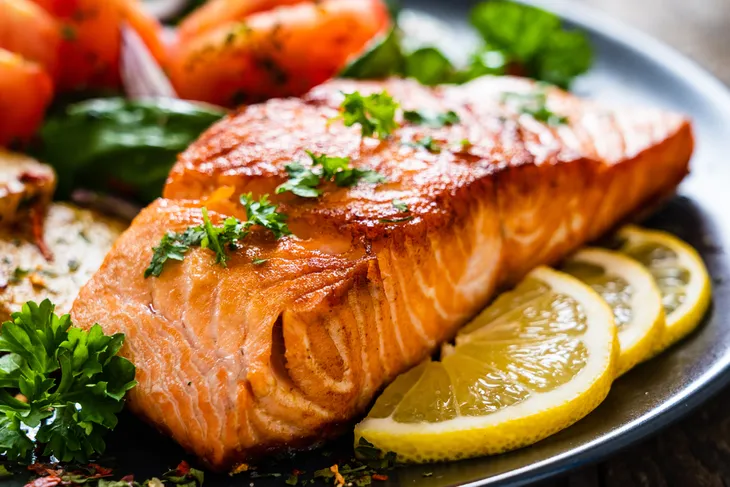 Shutterstock/Maria_Usp
Shutterstock/Maria_UspAvoid: Dairy Products
Dairy products don’t pose a problem for all individuals with ulcerative colitis. That said, it can trigger symptoms in some people. If you have ulcerative colitis and lactose intolerance, then you should definitely avoid dairy.
A lactose intolerance prevents you from properly digesting lactose (the sugar found in dairy). When you have an intolerance and you consume dairy, it’ll cause similar symptoms to ulcerative colitis, like diarrhea. Just be mindful of how dairy affects you and if it causes a flare, avoid dairy products (such as cheese, milk, yogurt, ice cream, and butter) in the future.
Eat: Ripe Bananas
Everyday Health notes that dieticians usually recommend avoiding raw fruits during an ulcerative colitis flare, however, very ripe bananas are encouraged. This is because they’re easy to digest.
Ripe bananas are also a great source of potassium. Healthline points out that IBD sufferers are often deficient in this vital mineral and adding more bananas to your diet is a great way to give yourself a potassium boost! Furthermore, bananas are also a great source of carbohydrates which can provide energy. Enjoy bananas on their own or freeze them and blend them to make a healthy ice cream alternative!
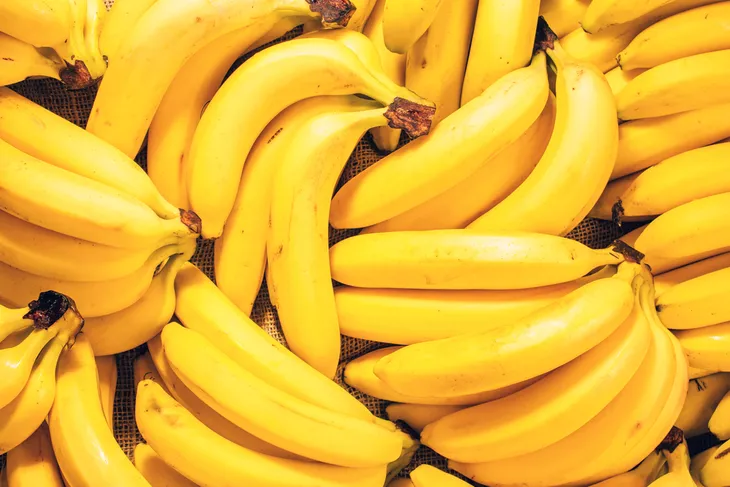 Shutterstock/Hanna_photo
Shutterstock/Hanna_photoAvoid: Carbonated Beverages
It may be tempting to enjoy carbonated beverages such as soda, energy drinks, and beer, but ulcerative colitis sufferers should really steer clear of these types of drinks. This is because carbonation can irritate the digestive tract and cause gas.
Carbonated drinks aren’t the only drinks you may want to avoid. You may need to avoid drinking coffee and alcohol as they can trigger diarrhea. Sugar and sugar alcohols (sweeteners) are also known to trigger ulcerative colitis symptoms so it may be best to avoid fruit juices.
Eat: Unsweetened Applesauce
Applesauce is not only naturally sweet and delicious it’s also soft, and easy to digest. This makes it a great contender for ulcerative colitis sufferers. Everyday health says, just be sure to choose the unsweetened variety as added sugar can make inflammation worse.
Better yet, making sugar-free applesauce at home is easier than you think. You simply need to core some apples, boil them with some water and then puree the mixture with an immersion blender. This recipe recommends leaving the skin on as it’s loaded with vitamins and nutrients.
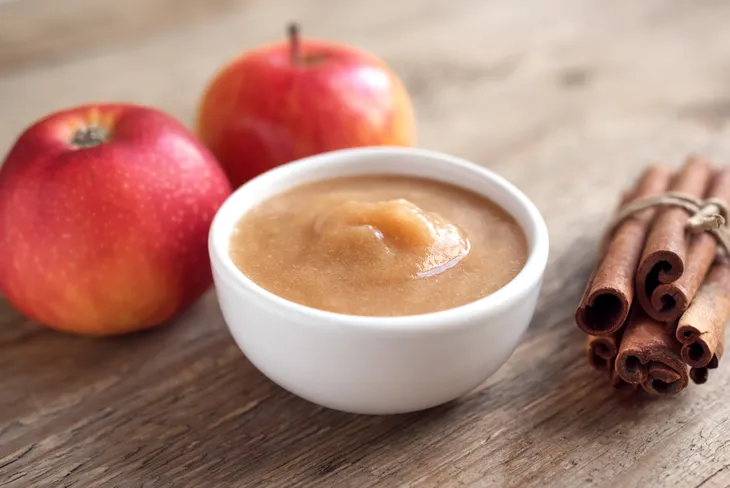 Source: Shutterstock
Source: ShutterstockAvoid: Nuts and Seeds
During an active flare, it may be best to steer clear of nuts and seeds. While these can be a very healthy snack, and they may not wreak havoc while you’re in a remission period, they may make your symptoms worse during a flare.
Nuts and seeds are rich in fiber which can be difficult to digest. In turn, this may cause more irritation in the lining of your intestines. According to Medical News Today, eating nuts and seeds during a flare may cause bloating, abdominal cramping, and diarrhea.
Eat: Some Fermented Foods
Fermented foods like yogurt, kimchi, sauerkraut, and kefir are not only good for the average person but they may benefit individuals with ulcerative colitis too. Medical News Today says the “good bacteria” in fermented foods may help aid digestion and help reduce flares and UC symptoms.
Healthline also points out that fermented foods can “boost the number of beneficial bacteria, or probiotics, in your gut.” They’re also associated with a range of health benefits from improved digestion to better immunity, says the source.
Avoid: Spicy Foods
Spicy foods, like hot sauces, hot peppers, buffalo wings (and others!) may be delicious, but those who have ulcerative colitis will want to avoid them, especially during a flare. Spicy foods can trigger diarrhea in many people, but it may trigger or worsen a flare in those with UC, says Medical News Today.
Everyday Health also says it’s best to avoid spices altogether during an active UC flare. Instead, stick to bland foods while your colon heals.
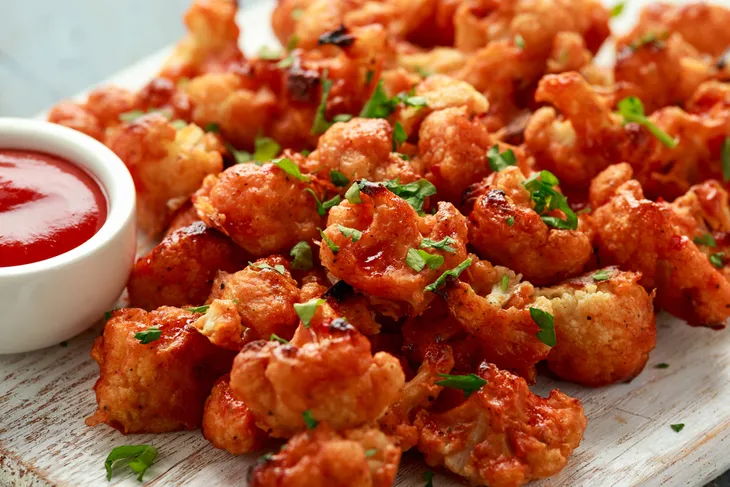 Shutterstock/DronG
Shutterstock/DronGEat: Eggs
Eggs are a versatile ingredient. They can be enjoyed on their own, added to salad, or used in baking — the options are endless! They’re also a great source of protein and essential nutrients like omega-3 fatty acids which we already know have anti-inflammatory properties and can be beneficial for ulcerative colitis sufferers.
Eggs are also easy to digest which may make them tolerable during a flare. Just be sure to skip the hot sauce and spices on top!
Avoid: Gluten
Gluten (a protein found in wheat, barley, rye, and triticale) can be a trigger food for individuals with IBD, including Crohn’s disease and ulcerative colitis. There are various reasons why it may trigger a flare. IBD Relief says it may be a trigger because you have undiagnosed celiac disease or an undiagnosed gluten allergy or sensitivity.
The source references a cross-sectional study in the U.S. which found that 65.6-percent of all patients who tried a gluten-free diet found their gastrointestinal symptoms were improved. It also says that 38.8-percent reported less severe flares.
Be Mindful of Portions
Eating a big plate of delicious food can be tempting but it’s important to be mindful of your portions whether you have ulcerative colitis or not. Not only can overeating lead to weight gain, but it can also put stress on your digestive system, making your symptoms worse, explains Everyday Health.
Instead of eating larger portions, focus on smaller, more frequent meals. This will help put less stress on your digestion and make it easier for your body to digest the food you’re eating. The source recommends eating five or six smaller meals every 2- to 3-hours.
 Shutterstock/astarot
Shutterstock/astarotOther Ulcerative Colitis Diet Tips
Figuring out which foods trigger a flare can be overwhelming. There are no set rules on what you can and can’t eat as everyone’s body is different. That said, one of the best ways to identify your trigger foods is to keep a food journal. Recording what you eat and how you feel afterward can help you figure out which foods you can and can’t eat.
Another ulcerative colitis diet tip is to meal plan and prep. Meal planning and prepping food in advance can help you avoid quick and poor decisions when you’re hungry. Avoiding your trigger foods will help you feel your best!


